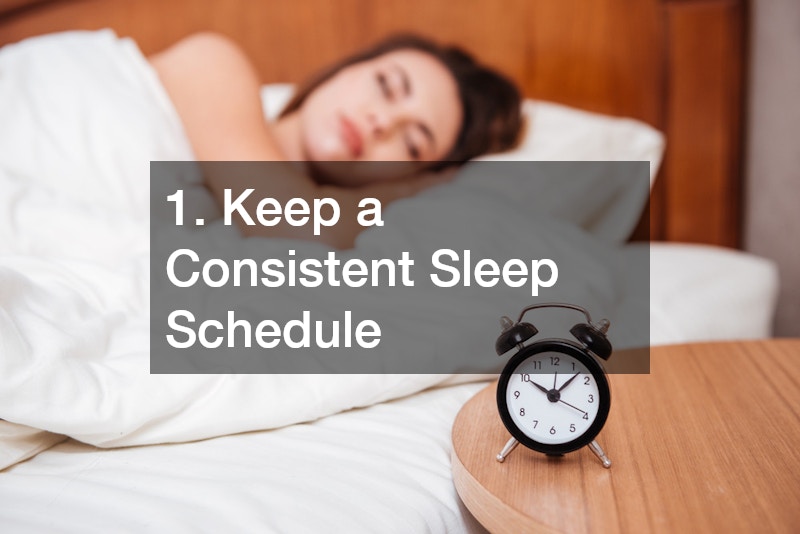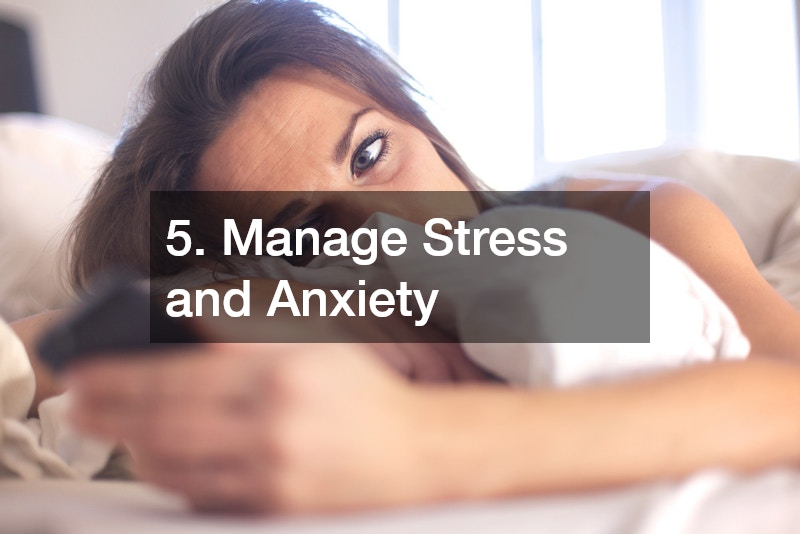
Good sleep isn’t a luxury—it’s a cornerstone of overall well-being. Quality rest is essential for maintaining physical health, regulating emotions, and supporting cognitive function, including memory, focus, and decision-making. Yet, despite knowing its importance, millions of people toss and turn at night, wake up feeling unrefreshed, or struggle to maintain consistent rest patterns. Many of these challenges stem not from serious medical issues, but from overlooked habits, environmental factors, or subtle lifestyle choices that interfere with natural sleep rhythms.
The good news is that you don’t need complex solutions or expensive devices to improve your rest. By focusing on sleep hygiene—the combination of daily habits, evening routines, and environmental optimisations that influence your sleep—you can take meaningful steps toward achieving the best sleep ever. Small, consistent changes in these areas can make a remarkable difference, allowing you to fall asleep more easily, stay asleep longer, and wake up feeling genuinely refreshed.
In this guide, we’ll explore ten detailed, practical sleep hygiene tips, complete with insights into lifestyle adjustments, environmental improvements, and preventive health strategies. From establishing consistent schedules and calming routines to optimising your bedroom, managing stress, and addressing potential health concerns, these strategies cover the full spectrum of habits that support restorative sleep. Whether you’re struggling with occasional restlessness or ongoing sleep disruptions, these tips provide actionable steps to reclaim your nights, enhance energy levels, and improve your overall quality of life.
By the end of this guide, you’ll have a comprehensive roadmap for creating a sleep-friendly lifestyle, helping you enjoy deeper, more restorative rest night after night—without relying on quick fixes or costly interventions.
1. Keep a Consistent Sleep Schedule

Your body thrives on routine. Going to bed and waking up at the same time every day—even on weekends—helps regulate your circadian rhythm, the internal clock that governs when you feel sleepy and alert. This consistency tells your body when to release melatonin, the hormone that promotes sleep.
Many people sabotage their schedule by staying up late or sleeping in, which causes a kind of “social jet lag.” Instead, try setting alarms for both bedtime and waking. Over time, your body adjusts, and sleep comes more naturally. Pair this with daytime practices like exposing yourself to natural light in the morning, which reinforces your sleep-wake cycle.
Parents can model this routine for children, too. A family-wide sleep schedule ensures everyone is rested, improving household moods and productivity. If you find yourself tempted to break the cycle, remind yourself that consistency today means better energy tomorrow.
2. Create a Relaxing Bedtime Routine
A good night’s sleep begins long before your head hits the pillow. What you do in the hour or two before bed sets the stage for how easily your body can transition into rest. Relaxing rituals—such as taking a warm shower or bath, meditating, practicing gentle yoga stretches, or reading a physical book—help signal to your mind and body that it’s time to wind down. Over time, these rituals train your nervous system to associate these activities with sleep, making it easier to drift off consistently.
It’s crucial to avoid screens during this period, as the blue light from phones, tablets, computers, and TVs suppresses melatonin production and stimulates alertness. Even just 30 minutes of screen-free time can significantly improve your ability to fall asleep. Replace technology with calming alternatives: listening to soft music, nature sounds, or guided meditations; practicing deep breathing exercises; or writing in a journal to unload lingering thoughts from the day.
Incorporating aromatherapy can also enhance relaxation. Essential oils like lavender, chamomile, or sandalwood have been shown to reduce anxiety and promote sleepiness. Pair this with soft lighting, such as bedside lamps, dimmable fixtures, or candlelight (real or LED for safety), to reinforce the natural cues for winding down.
Other helpful additions to your routine might include sipping a cup of caffeine-free herbal tea, doing a brief gratitude practice, or stretching tight muscles to release physical tension. Some people even find that a short, calming walk outside in the evening helps signal the end of the day. Think of your routine as a message to your brain: “It’s time to relax, let go, and prepare for rest.”
3. Optimise Your Sleep Environment

The quality of your environment has a direct impact on your sleep. The bedroom should be a sanctuary, free from stressors and distractions.
Start with the basics: ensure your mattress and pillows suit your preferred sleeping position. If they’re worn out, visiting a local mattress store to find supportive replacements is a worthwhile investment. Bedding should also be comfortable and breathable, promoting temperature regulation.
Temperature control plays a major role, with most experts recommending 60–67°F (15–20°C) for optimal sleep. Air circulation matters, too. Regular duct cleaning and timely air conditioning and heating repairs help keep the air fresh and allergen-free. Blackout curtains or eye masks can eliminate light pollution, while white-noise machines or fans can reduce disruptive sounds.
Think of your sleep environment as your personal retreat: clutter-free, comfortable, and designed to put your body at ease.
4. Limit Caffeine and Alcohol
Caffeine is one of the most common culprits behind restless nights. As a powerful stimulant, it blocks adenosine, a brain chemical that naturally promotes sleepiness. While enjoying a morning coffee, tea, or even dark chocolate is generally fine, consuming caffeine later in the day can delay sleep onset, reduce total sleep time, and fragment your rest. Experts generally recommend cutting off caffeine at least six hours before bedtime, though individual sensitivity varies. Some people may need to avoid caffeine after early afternoon to preserve quality sleep.
Alcohol may initially make you feel drowsy, but it can significantly disrupt your sleep cycle. It reduces the time spent in restorative deep sleep and REM sleep, which are crucial for memory consolidation, emotional regulation, and overall brain function. Even moderate drinking in the evening can lead to frequent awakenings, increased snoring, and a lighter, less restorative sleep overall. Over time, relying on alcohol as a sleep aid can contribute to dependency and worsen sleep problems rather than solve them.
Healthier alternatives for the evening include caffeine-free herbal teas, such as chamomile, peppermint, or valerian root blends. Warm water with lemon or honey can also provide a calming, hydrating option without stimulating your nervous system. Some people benefit from creating a nightly “wind-down beverage ritual” that signals to the brain it’s time for rest. Pair these drinks with other relaxation techniques—like light stretching, journaling, or meditation—to enhance the overall sleep-promoting effect.
5. Manage Stress and Anxiety

Stress and sleep are closely linked, often forming a cycle where stress prevents you from falling or staying asleep, and lack of rest worsens anxiety and tension. Breaking this cycle requires consistent, intentional strategies that address both the mind and body.
Daily practices such as mindfulness meditation, progressive muscle relaxation, deep breathing exercises, or yoga can help calm the nervous system, making it easier to unwind before bed. Journaling is another effective tool—writing down thoughts, worries, or to-do lists can “park” concerns for the night and free mental space for rest. Even short, 10–15 minute sessions can make a noticeable difference in your ability to relax.
Physical tension can also disrupt sleep. Some individuals benefit from chiropractic care or gentle stretching routines that relieve muscle tightness and improve circulation. Regular bodywork or massage therapy may also help release stress physically, signaling your body that it’s time to rest.
Accessing professional support is often easier with health insurance, which can cover therapy sessions, mental health counseling, or guided stress-management programs. Speaking with a mental health professional provides tools for managing chronic stress, anxiety, or sleep disturbances effectively, ensuring that your strategies are personalised and evidence-based.
By taking stress seriously, combining relaxation practices, and using professional resources supported by your health insurance, you create an environment where your body and mind are prepared for deep, restorative sleep. Over time, these habits improve not only your sleep quality but also mood, energy, and overall resilience during the day.
6. Prioritise Physical Activity
Exercise is one of the most effective natural remedies for poor sleep. Regular activity helps regulate hormones, reduce stress, and tire the body in a healthy way.
Aim for at least 30 minutes of moderate exercise most days of the week. This doesn’t have to mean hitting the gym—walking, cycling, or even dancing can be just as effective. Timing matters, though: vigorous exercise too close to bedtime may increase alertness and make it harder to fall asleep. Morning or afternoon workouts are best.
Exercise doesn’t just help you sleep better—it improves cardiovascular health, reduces risk of chronic disease, and enhances overall energy levels. Sleep and physical activity form a feedback loop: better sleep supports better workouts, and better workouts support better sleep.
7. Address Medical Concerns Promptly

Sometimes, poor sleep isn’t just about bad habits—it can be a symptom of underlying health issues. Sleep apnea, restless leg syndrome, and chronic pain are just a few conditions that interfere with rest.
Consulting your primary care provider is the first step to identifying potential problems. Local dental offices may even offer oral appliances that improve breathing during sleep. Don’t ignore persistent issues. Addressing them early prevents further complications and ensures your body gets the rest it needs to function properly. Professional care is not just about treatment—it’s about reclaiming your quality of life.
8. Be Mindful of Food and Drink Choices
What you eat and drink in the evening has a major impact on how well you sleep. Heavy meals, spicy dishes, or foods high in sugar can lead to indigestion or discomfort that keeps you awake.
Instead, aim for lighter snacks that promote sleep. Foods rich in tryptophan, magnesium, or melatonin—like bananas, almonds, or warm milk—can naturally support rest. Staying hydrated throughout the day is important, but avoid large amounts of fluids right before bed to reduce nighttime bathroom trips.
If digestive issues are affecting your sleep, consulting with healthcare professionals can help identify triggers. Your nightly diet should prepare your body for rest, not disruption.
9. Keep Your Space Clean and Allergen-Free
Cleanliness plays an underrated role in sleep hygiene. Routine duct cleaning improves air quality, while timely air conditioning and heating repairs ensure your environment is safe and well-regulated, as dust, allergens, and clutter can all impact your ability to rest comfortably.
Keep bedding clean and fresh by washing sheets weekly and replacing pillows regularly. Decluttering your room not only reduces allergens but also creates a calmer, more relaxing environment. When your space is clean, your mind rests easier. A pest control company can also address potential disturbances from insects or rodents, which may disrupt both hygiene and peace of mind.
10. Invest in Preventive Health Practices
Good sleep is closely tied to overall wellness, which means preventive healthcare matters. Regular visits to your primary care provider, as well as ongoing support from professionals like chiropractic care providers, ensure that minor issues don’t become sleep-disrupting problems.
Investing in preventive practices extends beyond medical visits. Regular dental care, consistent exercise, and creating a healthy living environment all contribute to sleep quality. Proactive attention helps prevent disruptions, ensuring your sleep environment and overall health remain aligned for optimal rest. By taking care of your health before issues arise, you’re making a long-term investment in restorative, energising sleep.
Achieving the best sleep ever isn’t about one magic solution—it’s about creating a series of supportive habits that add up over time. A sleep center may recommend diagnostic testing or treatment options like CPAP machines for sleep apnea if it turns out you’re in need of one. In addition to professional guidance, keeping a consistent schedule and prioritizing getting attention for underlying medical concerns is essential to strengthening your foundation for healthy rest.
Pairing these strategies with professional resources when needed—such as sleep centers, local mattress stores, or preventive healthcare—ensures that you’re not just sleeping better, but also living better. With commitment and consistency, you’ll discover that restful nights are within reach, giving you the energy and clarity to thrive every day.
